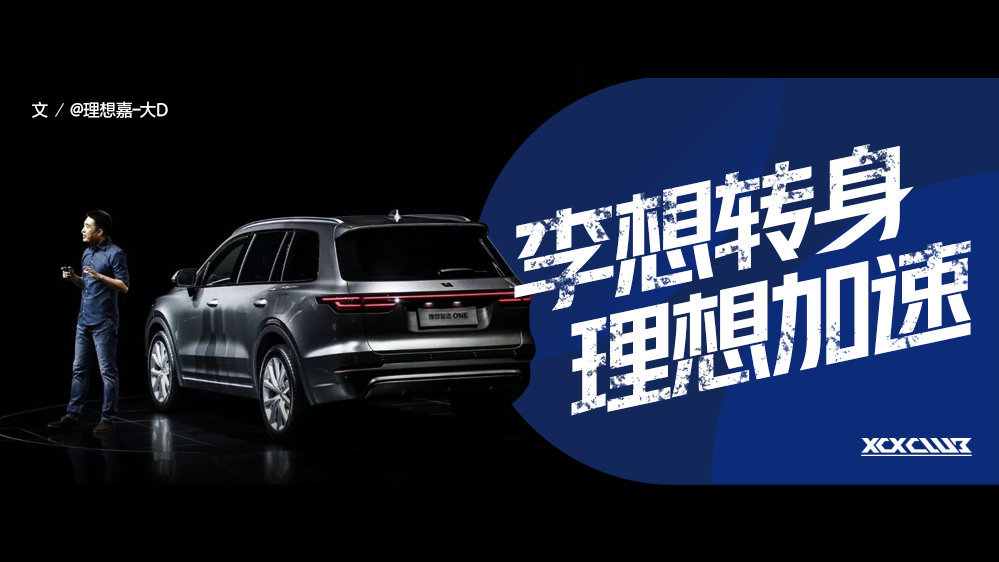On the evening of May 25, 2021, at 8:00 PM sharp at the Ideal Automotive R&D Center in Shunyi, Beijing, Li Xiang unveiled the 2021 model of the Ideal ONE, which will shoulder Ideal Automotive’s sales for the next 18 months. In the first three rows of the press conference, there were Ideal ONE car owners from all over the country, followed by supplier representatives and major automotive media, as well as internet celebrities.
The thirty-minute press conference began with Li Xiang summarizing Ideal Automotive’s past achievements: 55,000 units sold, the best-selling new energy SUV in 2020, and the best-selling domestically produced vehicle priced over 300,000 RMB in 2020. Li Xiang then introduced the 2021 model of the Ideal ONE with over 60 optimizations, and announced the price of 338,000 RMB before ending the press conference. Li Xiang did not stay on-site to interact with friends observing the new car nor attend the communication meeting with the old car owners. He was like a pure science and engineering male who had just launched his own product, turned around and left, ready for the next product.
Back in April 2014, when Li Xiang received the Tesla Model S key from Elon Musk, the seed of car making had already been planted. This first batch of Tesla owners in China with Li Xiang at the end of 2014 couldn’t help but write almost ten thousand words of vitriol after driving over 7,000 kilometers. They concluded with this sentence:
“The main purpose of my purchase of Model S was to experience the best electric car comprehensively, so that one day in the future, when electric cars become the trend, I can go with the flow.”
At that time, there was a surge of PPT car makers in China, from XPeng to LeEco. The dream of Chinese made cars made the scarcity of professional PPT talent apparent.
In 2015, Li Bin, the rival of Li Xiang from Yiche, approached him, and they agreed to join forces. Li Xiang became NIO’s first-round investor, using investment as an entry point to understand the real pattern and difficulties of the industry. This story seems familiar to Lei Jun’s Xiaomi story.
With the seed of car making thriving, Li Xiang may no longer want to be just an investor for NIO. With his understanding and vision for intelligent electric cars, he led the old colleagues of the Paopao and Autohome to establish “Chehejia.” Chehejia was an ambitious name that represented Li Xiang’s insights and predictions for automobile development.
Although the company has been renamed as “Ideal Automotive” for the sake of publicity, there are still subsidiary companies retaining this name in the main body structure of the listed company, and it may return one day.Car and Home was recently established, and Li Xiang made a far-reaching decision to build a factory in Changzhou, Jiangsu. At the same time, Li Bin’s NIO outsourced to JAC Motors, and He XPeng’s XPeng found Haima Motor for production. Undoubtedly, choosing suitable manufacturing partners for new carmakers at the beginning due to production qualifications, factory management capabilities, and capital efficiency is a very appropriate decision.
Initially, Car and Home’s plan was to have a small and exquisite SEV and a large and complete SUV. The small and exquisite SEV was Li Xiang’s first assignment as a product manager. The appearance was cool, the body was extremely small, with a front and rear layout, two seats, and the battery could be removed, and even carried upstairs for charging. All of this seemed very good, but China’s standards for low-speed electric vehicles have been slow to land, and the poor data from the European part-time leasing experiment has made all efforts in vain. Li Xiang had to cheaply sell the plan to Shiqi Era as an unmanned cargo vehicle for his first homework as a product manager.
After cutting the SEV project, Li Xiang, after a long period of contemplation and hesitation, accelerated the large and complete SUV project. The company’s resources were invested in this product that decided its fate. Li Xiang repeatedly said, “We only have one chance to play our cards!”
In this last chance to play our cards, Li Xiang took a risk again and chose a “range-extending technology path” that almost no investors thought was promising. At that time, when investors were all thinking about who would be the “Chinese Tesla,” the non-analogous technology path of extended range made financing difficult. But in China’s environment where charging conditions are not perfect, the extended range solved the difficult problem of “excellent pure electric experience plus worry-free mileage.”
After these two difficult decisions, Li Xiang’s soul as a product manager began to explode comprehensively, and he chose the niche subfield of a six-seater mid-to-large-sized SUV. The total sales of all six-seater mid-to-large-sized SUVs throughout 2018/2019 were less than 10,000 units. In retrospect, everyone found that the entire logic was “Chinese market SUV has a premium, mid-to-large-sized SUV has even more premium, and six-seater mid-to-large-sized SUV is even more of a blue ocean.”
The second point was to select the full-range standard configuration, one price, one configuration, to conquer the market. On the one hand, it greatly improved R&D and production efficiency; on the other hand, it also brought a new car-buying experience to consumers.
Other details include eye-catching front and rear star-ring headlights, a technology atmosphere composed of three screens inside the car and a control screen, a smooth in-car system, and UI design with excellent operation logic and aesthetics. The L2 assisted driving system is standard, and these details determine the outstanding product and communication power of the ideal ONE at the price of 300,000 yuan.# 李想’s Vision: From Industrial Organization to Intelligent Organization
At the press conference held on a specific evening in October 2018, starting from 8 PM sharp, Li Xiang introduced his then “LI ONE” product, spending a 6 million yuan conference budget, and 75 minutes to ultimately secure tens of thousands of initial orders, officially joining the triumvirate of China’s new energy vehicle industry.
The electrifying driving experience from electric drive, battery range assurance, and the new six-seater midsize SUV market, were Li Xiang’s second project as a product manager.
2020 is the year LI Motors overcame many obstacles and achieved its breakthrough. From the “smoking” incident to the “broken axle scandal,” the monthly sales have risen steadily, reaching a record-breaking delivery volume of 6,126 units in December, still the highest monthly sales record for a single domestic new energy vehicle model.
But in the second half of 2020, Li Xiang gradually disappeared from the media spotlight, and the once very active Li Xiang on the official Weibo community gradually faded away.
Later, Li Xiang said that he spent half of his time learning about organizational management and branding, and created a new organizational structure for LI Motors to cope with the ever-expanding personnel management and brand exploration in the future.
In January 2021, during the electric vehicle conference, while everyone was discussing policies, technology, and products, Li Xiang spent twenty minutes talking about branding and organizational structure.
“0-60 points of brand value is very very rational: high-quality products, high-quality services, and good technology. The 0-60 points of a brand determine whether the brand can survive, which Maslow put forward as a need for survival and safety. Above that is brand relations, which we believe is a brand’s 60-90 points, related to the relationship between people. In Maslow’s theory, it is the need for socializing and respect. The most important point here, and it is closely related to intelligent electric vehicles, is how to build a community with users.”
“With the emergence of smart products and ecosystems, we will be in an uncontrollable and outward-looking world. The car will come alive and keep growing, and we don’t actually know what specific software functions will be on these cars in half a year, a year from now, and many times, they will be defined by the community and users. Everything we do now is starting to revolve around one goal: to turn the company into an intelligent organization.”
In the Future Infinite Conference in May 2021, Li Xiang gave a speech themed “From Industrial Organization to Intelligent Organization.”After the development of the internet entered its third stage, the physical world gradually achieved comprehensive digitization. This means that productivity and production relations have changed, and enterprise organization requirements and forms must also change in order to better respond to challenges. For Ideal Automobile, the biggest problem it faces is how to upgrade from the traditional industrial process control of the initial stage to the intelligent organization mode.
Establishment of the 2025 Strategic Goal: Accelerate Ideal Automobile
As Li Xiang turns from a public figure to a manager, Ideal Automobile is accelerating its expansion.
According to a report from LatePost Finance, in January 2021, at the closed-door Ideal Automobile strategy meeting, Li Xiang specifically invited external shareholders Meituan’s Wang Xing and Wang Huilin to participate. It is likely that there were different opinions on the future development strategy of Ideal Automobile within the company, and taking advantage of the experience sharing of Wang Xing and Wang Huilin, the strategic plan for future acceleration was confirmed.
In February 2021, Li Xiang sent an internal letter to all Ideal Automobile employees, discussing his vision for the company in 2025.
Strategic goals must be measurable, with market share being the core of our strategy. Only when we achieve a market share of over 20% in China’s intelligent electric car market by 2025, becoming a recognized leading company, will we have enough reserve of talent, technology, and capital to participate in the more intense global market competition in 2030. The strategic goal of Ideal Automobile in 2025 is to obtain a 20% market share and become China’s number one intelligent electric car company.
According to the “Development Plan for the New Energy Vehicle Industry (2021-2035)” issued by the General Office of the State Council in November 2020, by 2025, the sales of new energy vehicles will account for approximately 20% of the total automobile sales, reaching an expected 5-6 million units. Calculated at around 80% for passenger cars and currently 90% of new energy vehicles being electric vehicles, it is conservatively estimated that the sales of electric passenger cars in 2025 will be around 3.6-4 million units (optimistically, in 2025, sales of intelligent electric vehicles will reach 8 million units).
Achieving a 20% market share in the intelligent electric car market in 2025 means the sales target is at least 700,000 units. Ideal Automobile is accelerating towards this goal.
Firstly, in terms of research and development, Ideal Automobile is speeding up in all aspects, whether it is in terms of overall vehicle design or intelligent driving. In March 2021, Ideal Automobile established a research and development center in Shanghai, located at the SAIC headquarters in Jading Yupan Building. The plan is to recruit 2,000 people with complete vehicle development capabilities. CTO Wang Kai said that a pure electric car platform will be placed in Shanghai in the future.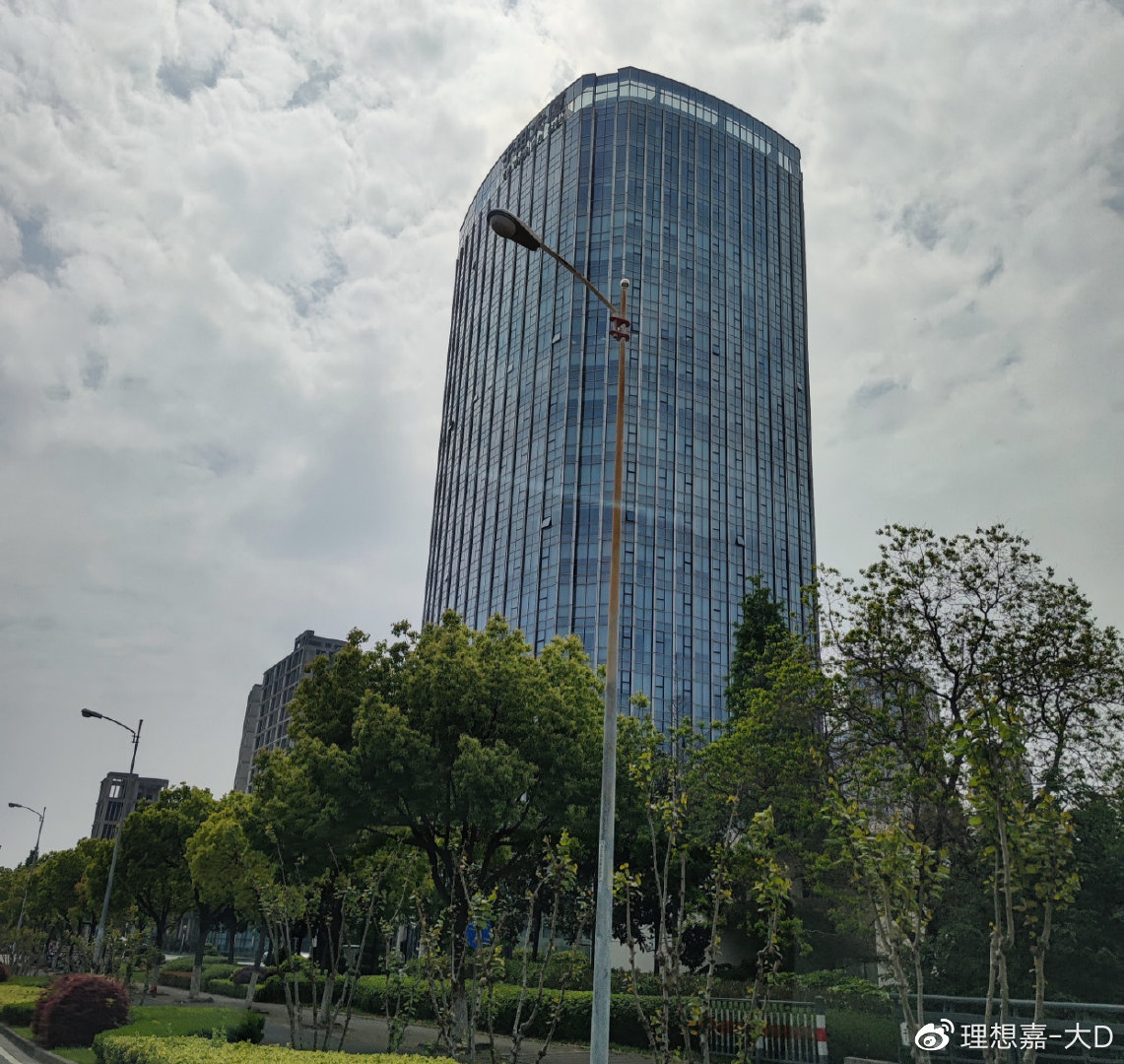
In addition, the R&D center of Li Auto, located in Beijing, is also expanding its recruitment in the fields of intelligent connectivity and autonomous driving. Apart from its headquarters in Shunyi, Li Auto has also rented the office space in Zhongguancun that was previously occupied by Autohome. The number of engineers working on autonomous driving is expected to increase to 600, among which the OS team will account for 200. The vice president of computing platform, Xu Yingchun, and the general manager of autonomous driving, Lang Xianpeng, will be in charge of this team.
Apart from R&D, mass production is also necessary in the automotive industry. On April 9, 2021, Li Auto officially founded Beijing Li Auto Co., Ltd., with registered capital of 1 billion yuan, and with Li Auto co-founder Shen Yanan as its legal representative. The scope of its business includes manufacturing new intelligent energy vehicles, containerized new energy intermodal vehicles, new energy intelligent automotive powertrain systems, etc.
Recently, news has emerged that Li Auto plans to invest 6 billion yuan to take over the first factory of Beijing Hyundai and build a new production base. Based on the original factory building and land resources of Beijing Hyundai, Li Auto will build a digital, flexible, and intelligent manufacturing plant. The factory will subsequently carry out key technology R&D in complete vehicles, core components, and autonomous driving, and is expected to employ over 2,000 technology talents in areas such as autonomous driving, artificial intelligence, big data, and industrial internet. The project is scheduled to be put into operation in 2023, and the industrial output value is expected to reach 30 billion yuan in 2024.
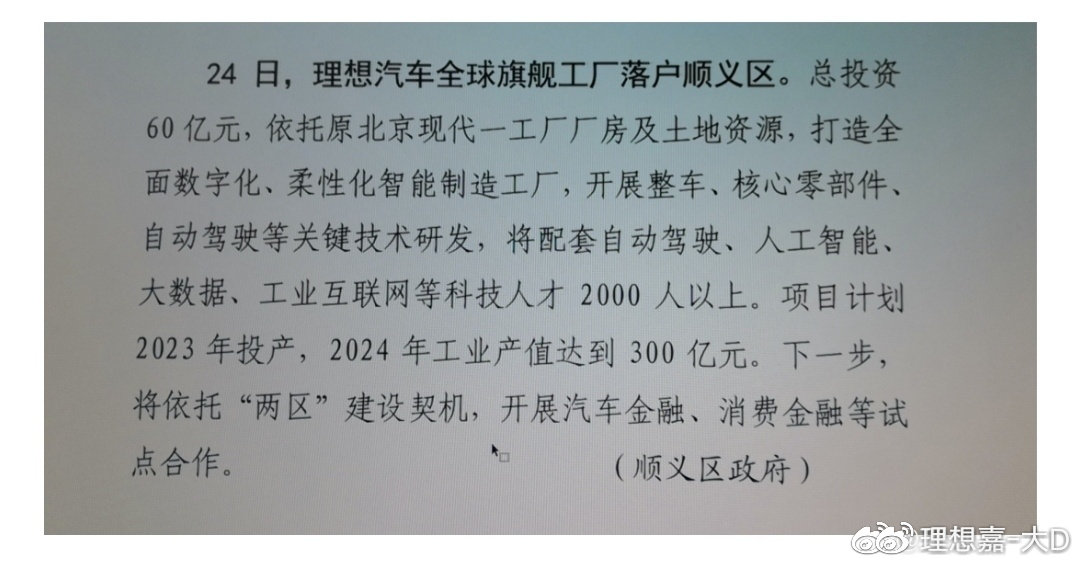
Besides taking over the first factory of Beijing Hyundai, Li Auto has been discussing with local authorities in Mianyang, Sichuan province since last October about strengthening cooperation in the R&D and production of key auto parts, in order to jointly build a new energy and intelligent connected vehicle industry cluster.
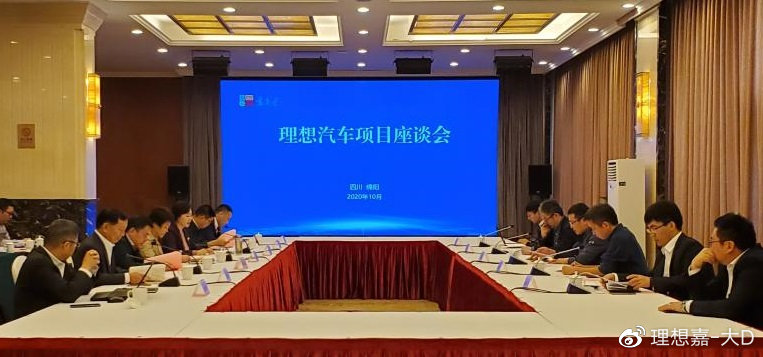
The expansion of Li Auto’s factory in Changzhou is currently underway, and the full-size extended-range SUV is expected to be put into production in the second half of 2022. Together with the Li ONE, production capacity will exceed 200,000 units, and the Changzhou government has also reserved development land nearby for Li Auto.
If everything goes smoothly, after the Changzhou, Beijing, and Mianyang factories are put into operation, Li Auto’s annual production capacity is expected to reach 700,000 units by 2025, basically satisfying its strategic demand for that year.
Finally, in terms of product line, Li Auto currently only has one model, the Li ONE, and there is still much room for improvement. According to various sources, a full-size extended-range SUV, codenamed X01, is expected to be released in October 2021.Li Xiang defined the X01 as a direct competitor to the BMW X7, which happens to be one of his favorite full-size SUVs. According to the information released so far, the vehicle is expected to be 5200 mm in length, feature an upgraded fully-loaded chassis with double-wishbone and air suspension, a 1.5T Miller-circuit range extender with a 40% thermal efficiency, dual 8155 chips with a new HUD and five-screen interaction, and hardware for L4 intelligent assisted driving with dual-block total computing power of 508 Tops, as well as a laser radar sensor. The projected price range is between 400,000 and 500,000 RMB.
Of course, the sales generated by the two plug-in hybrid models in the large and full-size SUV segments are still limited. To achieve its 2025 strategic goals, Ideal Auto’s pure electric platform is also accelerating. Li Xiang stated that the company will adopt the 800V high-voltage tri-power standard in its pure electric cars to shorten users’ charging times.
Li Xiang revealed during this year’s investor conference call that Ideal Auto will launch at least two new products in the market each year starting from 2022 and deliver a full range of pure electric cars in 2023. Currently, Ideal Auto covers only the price range from 300,000 to 350,000 RMB, while the upcoming product line will cover the price range from 150,000 to 500,000 RMB. The company plans to introduce two product platforms, both of which will be high-voltage pure electric platforms, and the Whale platform will focus on spaciousness, while the Shark platform will focus on performance.
It is estimated that the first Ideal electric car will be launched in 2022, and a 250,000 to 350,000 RMB pure electric car will begin production at the Beijing factory in 2023. Pure electric cars with lower volume in the 150,000 to 250,000 RMB range may be produced simultaneously at the Beijing and Mianyang factories.
Ideal Auto, through the development of plug-in hybrid and high-voltage pure electric lines, plans to have more than six car models on sale by 2025, achieving its strategic goal.
Ideal Auto has accelerated its overall development in terms of R&D, factories, and models to achieve its 2025 strategic goals; the most important task remaining is funding. As of the first quarter of 2021, Ideal Auto had cash reserves of 30.36 billion RMB, the least among the three new forces in the industry.
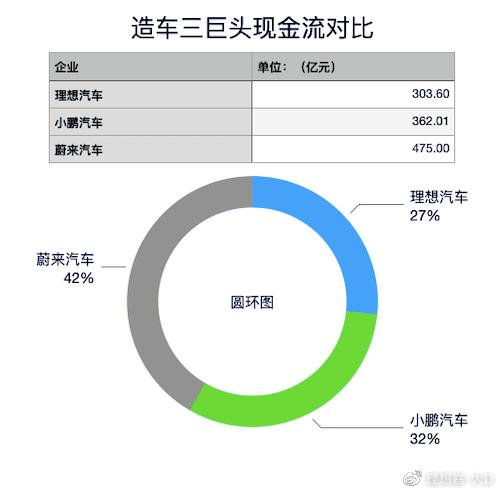
It is predicted that “continued financing, issuing bonds, and introducing strategic investors and additional fundraising in the Hong Kong stock market” will be the most important steps for Ideal Auto in the next three years to accelerate its development.# Li Xiang’s Strengths as a Super Product Manager
Through Ideal ONE’s precise product positioning, Li Xiang has demonstrated his strength as a super product manager. Ideal Auto’s production and sales strength, evidenced by the sales of a single model of 55,000 vehicles, and good product gross margin testify to the company’s ability to control costs.
Currently, Li Xiang is focusing on developing a smart organization to build Ideal Auto into a super enterprise. It remains to be seen if this will continue to impress investors and convince them to believe in Ideal Auto’s 2025 strategic goals, thereby providing continuous funding to the automaker.
Ideal Auto’s Vision for 2030
Ideal Auto’s vision for 2030 is to create mobile homes and become the world’s leading intelligent electric vehicle enterprise. This is an unprecedented vision and goal for a Chinese company, and we have a responsibility to meet this challenge with outstanding achievement. Though the traditional automotive industry has been developing for over 100 years, the competition in intelligent electric vehicles will be largely settled by 2030. We hope that, through the collective efforts of all our partners in the best ten years of our lives and the best ten years of the industry, we can make a truly great undertaking. Let’s make these ten years the proudest of our lives, and not leave any regrets.
The life of a striver is always worthy of respect. We hope that Li Xiang will continue to uphold the ideals of transparency and values, lead Ideal Auto to accelerate, stay anchored to the 2025 strategic goals, and achieve the vision.
This article is a translation by ChatGPT of a Chinese report from 42HOW. If you have any questions about it, please email bd@42how.com.
